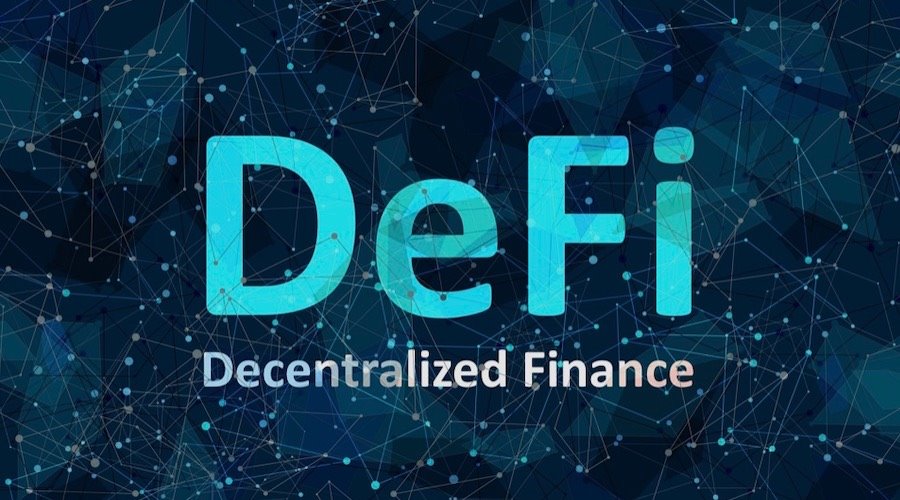Currently, there is over $41 billion Total Value Locked on DeFi protocols. Decentralized exchanges and lending protocols accumulate the lion's share of this TVL. However, as DeFi stands, unique possibilities exploiting the convergence of these two dominant markets are still to be leveraged.
Liquidity providers (LPs) in Automated Market Maker (AMM) models like Uniswap and SushiSwap receive in their wallets 'pool shares', or LP tokens, in exchange for the tokens they deposit in the pools. Liquidity tokens represent a fractional stake in a liquidity pool. LP tokens can be staked for earning rewards through yield farming or leveraged to take out crypto loans.
To effectively represent someone's share of the pool and allow it to be freely exchanged, LP tokens are the best option due to the dynamic nature of the token pair, which changes proportionally whenever a transaction is made. When someone cashes in their pool balance, the same number of liquidity tokens are burned.
In certain digital asset exchanges (DEXs), LP tokens are regular ERC-20 tokens. Some DEXs employ NFTs as liquidity provider tokens, including the widely used Uniswap v3 and its clones. However, composability issues may still be addressed by encasing non-fungible liquidity tokens into ERC-20 tokens.
In all of DeFi, LP tokens may be traded, purchased, and used just like any other currency. However, there are currently only a small handful of viable options for deploying LP tokens into the DeFi ecosystem.
The True Value of LP Tokens in a DeFi Ecosystem
The key value of LP tokens lies in their composability. Within crypto, composability is the ability of decentralized applications (dApps) and DAOs to integrate the features of one another. Most traders nowadays use liquidity mining as their primary strategy for making use of LP tokens' composability capabilities.
Liquidity mining, to put it simply, is the practice of incentivizing participants to add to a given pool of liquidity by providing incentives to those who do so. Programs designed for liquidity mining provide a user interface for staking LP tokens in exchange for incentives.
DeFi lending platforms leveraging liquidity mining programs can use LP tokens for their project's governance, and enable the fixed-interest markets to function well. Leveraging LP tokens also allow projects to minimize the volatility of their native currency.
Most importantly, LP tokens can serve as proof that an investor has lent crypto assets to a DeFi liquidity pool, and that the tokens must be burnt in order to get their assets back. It can also be used to unlock new layers of access or yield farming opportunities within a DeFi platform.
Although lending secured by LP tokens has been done before, it is still in its formative stages. There usually aren't enough safeguards to ensure the platform's stability and financial viability under the existing alternatives.
How LP Tokens Can Add Value to Existing DeFi Investment Protocols
Facilitating borrowing against LP tokens is likely to provide positive results. Since LP tokens are highly underexplored, the borrower's capital is locked up even more profoundly than with other cryptocurrencies.
Via overcollateralized loans, liquidity providers will gain access to stablecoin capital without having to liquidate their LP assets. This allows investors to leverage their exposure to the liquidity pool's yields or to take part in further DeFi opportunities. This approach enables them to maximize capital efficiency while generating income through platform fees.
LP tokens can deliver benefits for projects that actively provide liquidity to specific pools, such as the ETH pool. They may unlock the value in their LP tokens and use it toward things like operating expenses, research and development, and investments without sacrificing any of the tokens' liquidity. As long as their loan holdings remain adequately overcollateralized, projects may avoid unwinding LP positions or selling governance tokens, which is particularly helpful in a downturn market like the present one.
How to Integrate LP Tokens into a Lending Platform?
In theory, integrating LP tokens into a lending platform is a rather straightforward process.
An LP token’s value is simply the value of the assets it can be exchanged for, and the liquidity of a token is a function of the liquidity of the assets it represents. One need not worry about the tokens' available liquidity . They may be exchanged for these underlying assets, which are often far more liquid. Therefore, the difference is little. The Loan-To-Value Ratio of the LP token must take into account the impact of impermanent loss.
However, certain obstacles still must be overcome before this becomes a reality. When determining the LP token's redemption value, the platform must compile a pricing feed that factors in the cost and proportion of the underlying assets. The Liquidator Reward Percentage must be adjusted to account for the additional gas expenses necessary to liquidate these tokens.
While there hasn't been an extensive analysis of three-sided LP instruments, we expect that the same concerns remain relevant as with two-sided/paired liquidity pools. Liquidators may have more assets to sell, which is the most noticeable difference.
If these issues are resolved, DeFi lending protocols will be able to whitelist any relevant LP token into their platforms swiftly.



















